Nori Human CCL2 ELISA Kit
$508.00 – $916.00
This ELISA kit is for quantification of CCL2 in human. This is a quick ELISA assay that reduces time to 50% compared to the conventional method, and the entire assay only takes 3 hours. This assay employs the quantitative sandwich enzyme immunoassay technique and uses biotin-streptavidin chemistry to improve the performance of the assays. An antibody specific for CCL2 has been pre-coated onto a microplate. Standards and samples are pipetted into the wells and any CCL2 present is bound by the immobilized antibody. After washing away any unbound substances, a detection antibody specific for CCL2 is added to the wells. Following wash to remove any unbound antibody reagent, a detection reagent is added. After intensive wash a substrate solution is added to the wells and color develops in proportion to the amount of CCL2 bound in the initial step. The color development is stopped, and the intensity of the color is measured.
Alternative names for CCL2: Chemokine (C-C motif) ligand 2 , monocyte chemotactic protein-1 (MCP-1), small inducible cytokine A2
This product is for Laboratory Research Use Only not for diagnostic and therapeutic purposes or any other purposes.
- Description
- How Elisa Works
- Product Citation (0)
- Reviews (0)
Description
Nori Human CCL2 ELISA Kit Summary
Alternative names for CCL2: Chemokine (C-C motif) ligand 2 (CCL2), monocyte chemotactic protein-1 (MCP-1), small inducible cytokine A2
| Assay Type | Solid Phase Sandwich ELISA |
| Format | 96-well Microplate or 96-Well Strip Microplate |
| Method of Detection | Colorimetric |
| Number of Targets Detected | 1 |
| Target Antigen Accession Number | P13500 |
| Assay Length | 3 hours |
| Quantitative/Semiquantitative | Quantitative |
| Sample Type | Plasma, Serum, Cell Culture, Urine, Cell/Tissue Lysates, Synovial Fluid, BAL, |
| Recommended Sample Dilution (Plasma/Serum) | No dilution for sample <ULOQ; sufficient dilution for samples >ULOQ |
| Sensitivity | 3 pg/mL |
| Detection Range | 15.6-1000 pg/mL |
| Specificity | Natural and recombinant human CCL2 |
| Cross-Reactivity | < 0.5% cross-reactivity observed with available related molecules, < 50% cross-species reactivity observed with species tested. |
| Interference | No significant interference observed with available related molecules |
| Storage/Stability | 4 ºC for up to 6 months |
| Usage | For Laboratory Research Use Only. Not for diagnostic or therapeutic use. |
| Additional Notes | The kit allows for use in multiple experiments. |
Standard Curve
Kit Components
1. Pre-coated 96-well Microplate
2. Biotinylated Detection Antibody
3. Streptavidin-HRP Conjugate
4. Lyophilized Standards
5. TMB One-Step Substrate
6. Stop Solution
7. 20 x PBS
8. Assay Buffer
Other Materials Required but not Provided:
1. Microplate Reader capable of measuring absorption at 450 nm
2. Log-log graph paper or computer and software for ELISA data analysis
3. Precision pipettes (1-1000 µl)
4. Multi-channel pipettes (300 µl)
5. Distilled or deionized water
Protocol Outline
1. Prepare all reagents, samples and standards as instructed in the datasheet.
2. Add 100 µl of Standard or samples to each well and incubate 1 h at RT.
3. Add 100 µl of Working Detection Antibody to each well and incubate 1 h at RT.
4. Add 100 µl of Working Streptavidin-HRP to each well and incubate 20 min at RT.
5. Add 100 µl of Substrate to each well and incubate 5-30 min at RT.
6. Add 50 µl of Stop Solution to each well and read at 450 nm immediately.
Background:
Chemokine (C-C motif) ligand 2 (CCL2), also known as monocyte chemotactic protein-1 (MCP-1) or small inducible cytokine A2, is a protein that in humans is encoded by the CCL2 gene. CCL2 is a small cytokine belonging to the CC chemokine family. CCL2 recruits monocytes, memory T cells, and dendritic cells to sites of tissue injury, infection, and inflammation (1, 2). The cell surface receptors that bind CCL2 are CCR2 and CCR4 (3). CCL2 has been implicated in the pathogenesis of diseases characterized by monocytic infiltrates, like psoriasis, rheumatoid arthritis and atherosclerosis (4). CCL2 is involved in the neuroinflammatory processes that takes place in various central nervous system (CNS) diseases characterized by neuronal degeneration. Its expression by glial cells is increased in epilepsy, brain ischemia Alzheimer’s disease experimental autoimmune encephalomyelitis (EAE), and traumatic brain injury. CCL2 induces amylin expression through ERK1/ERK2/JNK-AP1 and NF-κB related signaling pathways independent of CCR2. Amylin upregulation by CCL2 may contribute to elevation of plasma amylin in obesity and insulin resistance (5).
References
- Carr, MW, et al. (1994). PNAS. 91 (9): 3652.
- Xu, LL, et al. (1996). J leukocyte biol. 60 (3): 365
- Craig, MJ, et al. (2006). Cancer Metast Rev. 25 (4): 611
- Xia, M, et al. (2009). Expert Opin Ther Pat. 19 (3): 295
- Cai, K, et al. (2011). Fadini, Gian Paolo. ed. PLoS ONE 6 (5): e19559
Be the first to review “Nori Human CCL2 ELISA Kit”
You must be logged in to post a review.
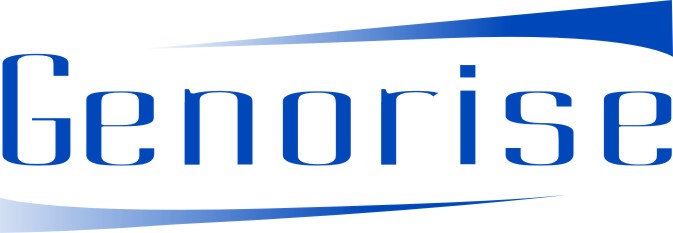






















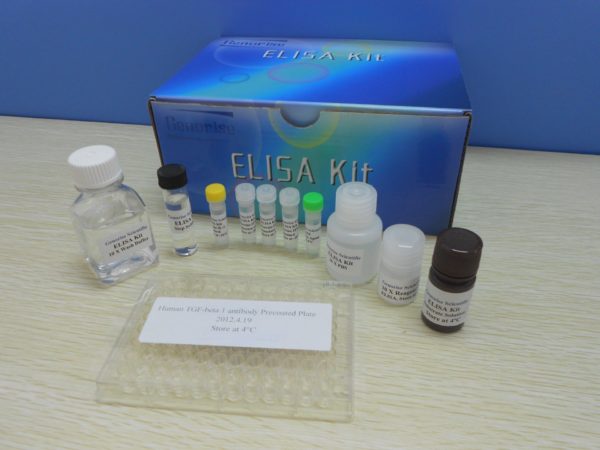
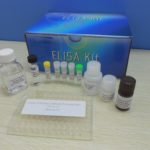
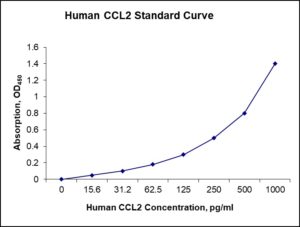
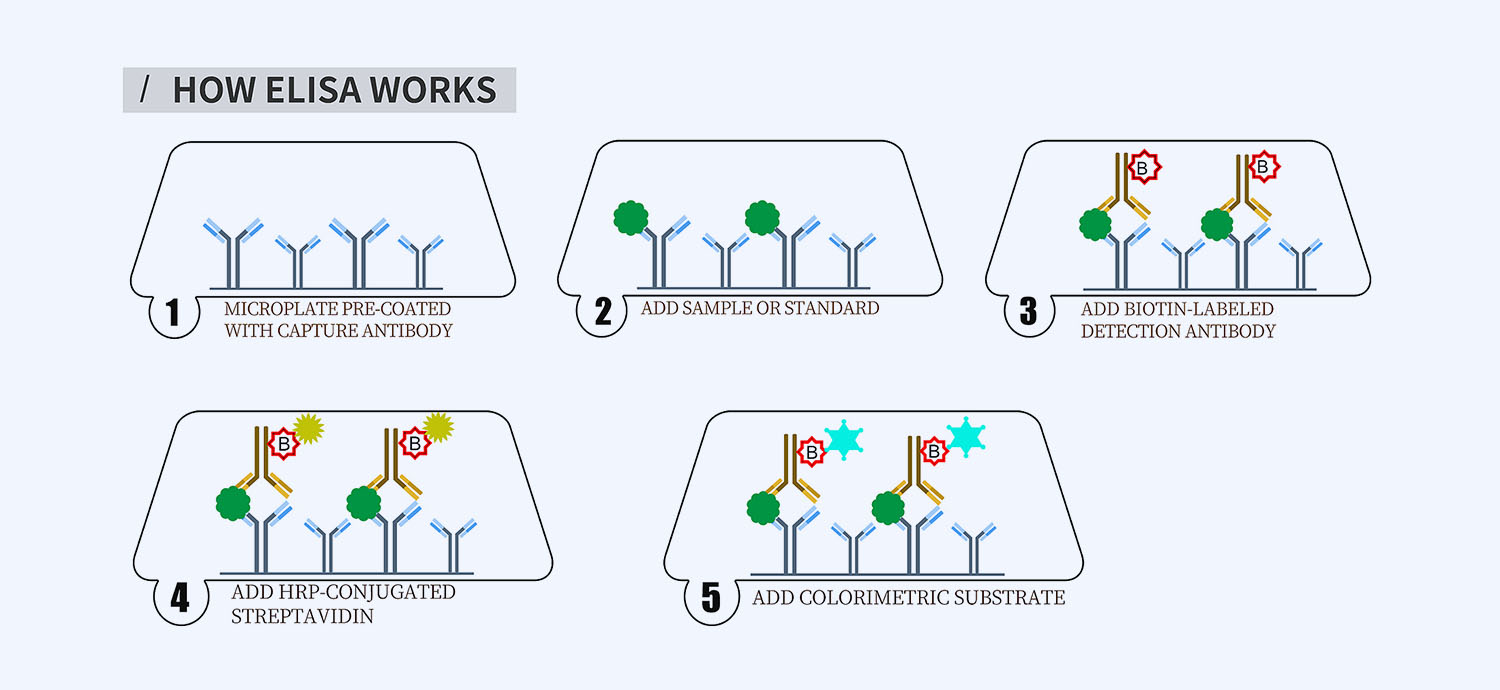
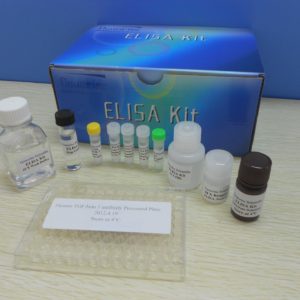
Reviews
There are no reviews yet.